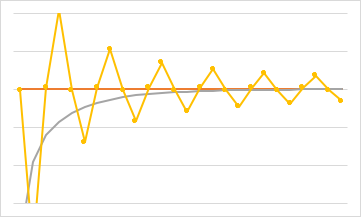If the Bible is the Word of God, then it is truth. When I talk about the Word of God, I am talking about the original texts. We do not have the original texts at this time, other variables include translation and interpretation, which I cannot take as “inspired” as they are different form each other.

Graphically represented, if the Bible is truth, it is constant and represented by the orange lines. Given an infinite amount of time, science will reveal truth and it is represented by the gray line. A highly variable part is our interpretation of the Bible and it is represented by the yellow line. We are probably somewhere on the left side of the chart.
I feel a large part of perceived conflict with science is our interpretation of the Bible. For example, I feel that the two creation narratives in Genesis are not a retelling of the same story but are sequential events which eliminates the conflict with evolution.